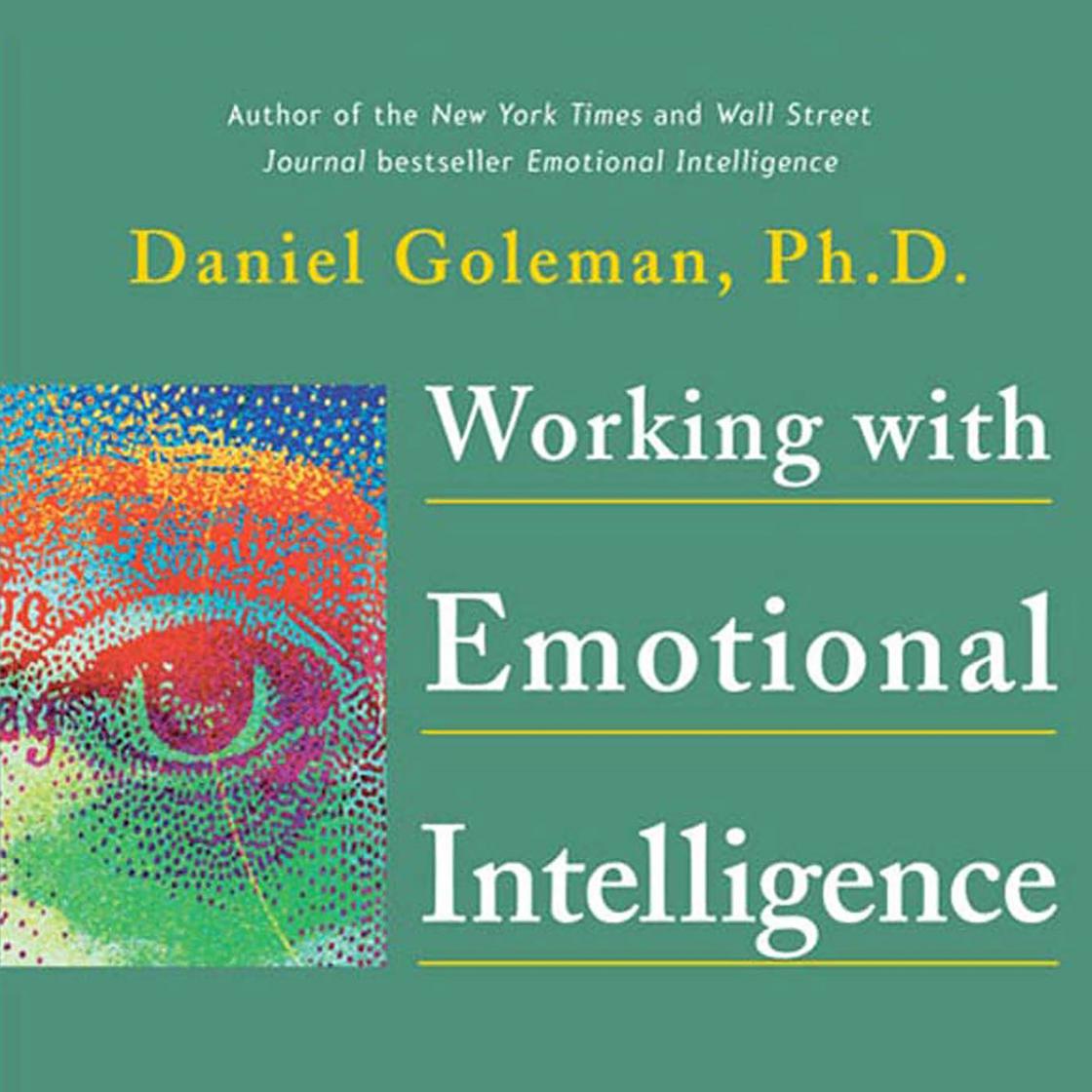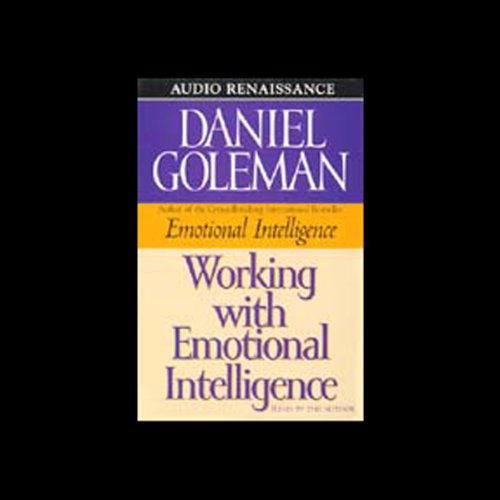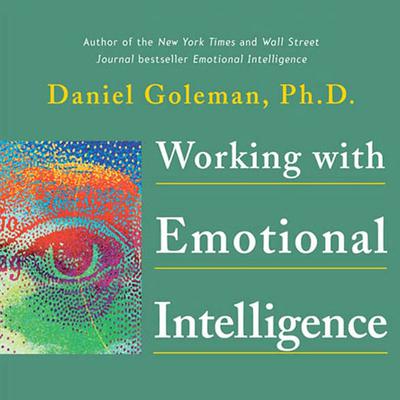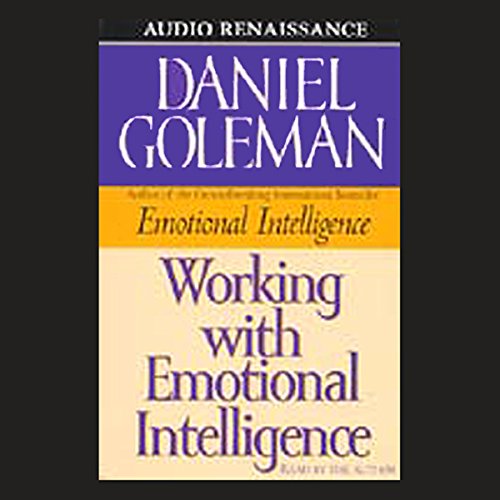Daniel Goleman’s “Working With Emotional Intelligence” audiobook explores the crucial role of emotional intelligence in professional success. Goleman emphasizes skills like self-awareness, empathy, and social skills.
Emotional intelligence, often abbreviated as EQ, is essential for effective leadership and teamwork. Daniel Goleman’s audiobook, “Working With Emotional Intelligence,” delves into the significance of EQ in the workplace. Goleman identifies key components such as self-regulation, motivation, and social skills that contribute to professional growth.
Unlike traditional intelligence, which focuses on cognitive abilities, EQ encompasses understanding and managing emotions. This audiobook provides practical insights and strategies to enhance emotional competencies. By improving EQ, individuals can foster better relationships, enhance communication, and achieve greater success in their careers.

The Core Concepts Of Emotional Intelligence
Daniel Goleman’s audiobook, Working With Emotional Intelligence, explores the vital role of emotional intelligence in personal and professional success. Understanding these core concepts can transform how you interact with others and improve your workplace efficiency.
Goleman’s Five Domains
Goleman breaks down emotional intelligence into five main domains:
- Self-Awareness: Recognizing your own emotions and their impact.
- Self-Regulation: Controlling or redirecting disruptive emotions.
- Motivation: Harnessing emotions to pursue goals with energy.
- Empathy: Understanding the emotional makeup of others.
- Social Skills: Managing relationships to move people in desired directions.
These domains form the foundation of emotional intelligence. Mastering them leads to better personal and professional outcomes.
Emotional Intelligence In The Workplace
Emotional intelligence plays a crucial role in the workplace. It affects how employees interact and collaborate.
| Domain | Impact in Workplace |
|---|---|
| Self-Awareness | Improves decision-making and job performance. |
| Self-Regulation | Reduces stress and conflict among team members. |
| Motivation | Enhances commitment and drive toward goals. |
| Empathy | Builds stronger relationships and teamwork. |
| Social Skills | Facilitates better communication and leadership. |
Employees with high emotional intelligence can navigate workplace challenges more effectively. They create a positive work environment and drive team success.

Practical Applications And Strategies
Daniel Goleman’s audiobook, Working With Emotional Intelligence, offers practical tools for personal and professional growth. It introduces strategies to enhance emotional intelligence, enabling better relationships and decision-making.
Self-awareness Techniques
Self-awareness is the cornerstone of emotional intelligence. It involves understanding your own emotions and how they affect your thoughts and actions. Goleman provides several techniques to improve self-awareness:
- Journaling: Write down your thoughts and feelings daily.
- Mindfulness: Practice being present in the moment.
- Feedback: Seek constructive feedback from trusted peers.
- Reflection: Spend time reflecting on your daily interactions.
These techniques help you recognize emotional triggers and understand your reactions. This awareness leads to better emotional control and improved relationships.
Developing Empathy And Social Skills
Empathy and social skills are vital for effective communication and collaboration. Goleman outlines strategies to develop these skills:
| Empathy Strategies | Social Skills Strategies |
|---|---|
| Active Listening | Effective Communication |
| Perspective-taking | Conflict Resolution |
| Non-verbal Cues | Building Rapport |
| Emotional Validation | Team Building |
Active listening involves fully focusing on the speaker and understanding their message. Effective communication means expressing your thoughts clearly and concisely.
Conflict resolution skills help in managing disagreements constructively. Building rapport involves establishing a connection and mutual trust with others.
Using these strategies consistently can enhance your emotional intelligence, leading to better personal and professional relationships.
Impact And Outcomes
Daniel Goleman’s audiobook, Working With Emotional Intelligence, explores the profound impact and outcomes of emotional intelligence in the workplace. Emotional intelligence, or EQ, is essential for professional success. It influences leadership, teamwork, and personal growth.
Case Studies On Emotional Intelligence
Many real-world examples show how EQ affects job performance. For instance, a leading tech company used EQ training. This led to a 20% increase in team productivity. Another example is a healthcare provider. They integrated EQ practices and saw higher patient satisfaction rates.
| Industry | Outcome |
|---|---|
| Technology | 20% increase in productivity |
| Healthcare | Higher patient satisfaction |
These case studies highlight the tangible benefits of emotional intelligence. It is not just about feeling good; it is about achieving better results.
Future Of Emotional Intelligence In Professional Growth
The future of EQ in professional growth looks promising. Companies are investing more in EQ training. This trend is set to continue as organizations see the benefits.
- Enhanced leadership skills: Leaders with high EQ inspire and motivate their teams.
- Better teamwork: Teams with high EQ collaborate effectively and resolve conflicts.
- Personal development: Individuals with high EQ manage stress and adapt to change.
As the workplace evolves, emotional intelligence will play a crucial role. It will be a key factor in hiring, training, and development. Employees with high EQ will likely have more growth opportunities.

Conclusion
Daniel Goleman’s “Working With Emotional Intelligence” audiobook offers invaluable insights. It enhances personal and professional growth. Mastering emotional intelligence is crucial for success. This audiobook provides practical strategies to improve emotional skills. Listen and transform your interpersonal relationships and career.
Unlock your potential with Daniel Goleman’s expert guidance.



